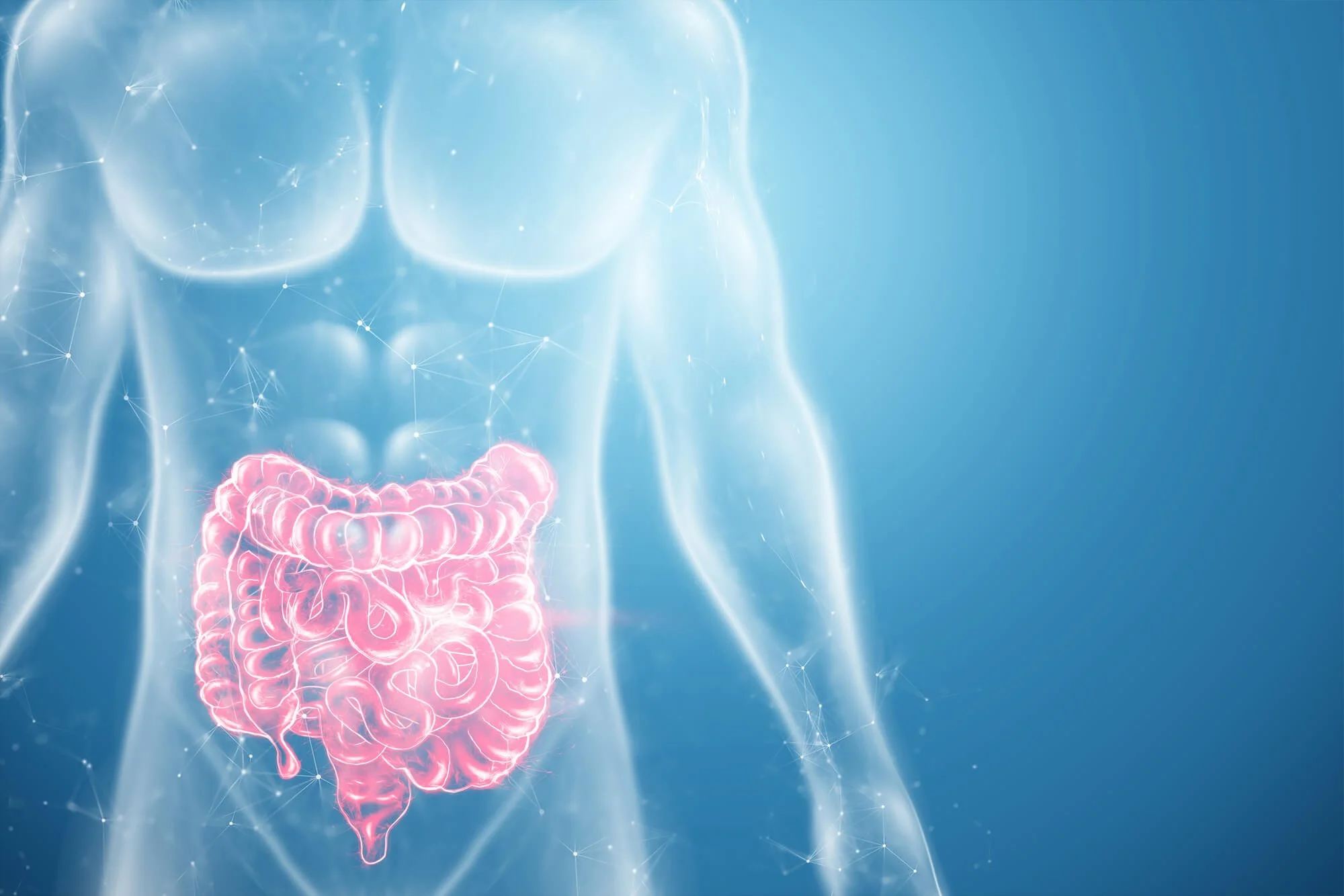Role of the Gut Microbiome in Healthy Weight Management and Metabolic Health
Metabolic disease and obesity are a huge public health burden in western society. The connection between gut health and weight loss has been gaining attention in recent years. As we learn more about the microbiome - the collection of microbes that live inside us and the genes they encode - it’s becoming increasingly clear that these trillions of microbes that occupy our gut play a critical role in our metabolic health. With this knowledge comes an understanding of how probiotics can help with weight loss by improving gut health and promoting healthy metabolism. In this blog post, we will explore the role of the microbiome and gut health in healthy weight loss and metabolic health, as well as what probiotics are best for achieving these goals.
Gut Microbiome & Obesity…
Over a decade ago Ley et al. (2005) and Turnbaugh et al. (2006) noted differences in the gut microbiota at the phyla level (primarily an increase in the Firmicutes / Bacteroidetes ratio) in mice and humans. More recent efforts have focused more on the mechanistic reasons the microbiome can regulate healthy metabolic health and weight management. Some of the proposed mechanisms include: gut dysbiosis (imbalance of healthy/unhealthy microbes) leads to an imbalance in the inflammatory processes and loss of epithelial integrity (increased intestinal permeability/leaky gut). Bacterial components, like endotoxins, that leak out of the gut can invoke low-grade, chronic, and systemic inflammation. There seems to be a consistency in the research that increased abundance of Faecalibacterium, Bifidobacterium, Lactobacillus, and Akkermansia provides a protective role against metabolic disturbances (Uusitupa et.al., 2020).
Akkermansia muciniphila & Weight Loss…
Naito et.al., (2018) published a review article titled A next-generation beneficial microbe: Akkermansia muciniphila whereby they looked into health benefits of Akkermansia particularly as it pertains to glucose metabolism, lipid metabolism and intestinal immunity. In a healthy individual Akkermansia should make up 1-4% of the bacteria in the colon. Akkermansia has been shown to be inversely associated with obesity, diabetes and cardiometabolic diseases and low grade inflammation. When overweight or obese people undergo calorie restricted dieting improvements in insulin sensitivity is greater in individuals who have higher levels of Akkermansia to start with. Newer research that is coming out has shown that an outer membrane protein of Akkermansia, Amuc-1100 activates intracellular signals mediated by the Toll-Like Receptor 2 (TLR2) of intestinal cells. This has been shown to strengthen the tight junctions of intestinal barrier (or in layman's terms improve leaky gut). Amuc-1100 of Akkermansia has also been shown to upregulate Interleukin-10 production, an anti-inflammatory cytokine. Given the host of benefits that are associated with cardiometabolic health and weight management focussing on strategies to promote healthy Akkermansia levels would seem wise.
Polyphenols & Akkermansia
Polyphenols found in grapes and cranberries have been shown to increase the abundance of Akkermansia. Verhoog et.al.,( 2019), conducted a systematic review looking at dietary factors that influence Akkermansia abundance in the gut. Caloric restriction or intermittent fasting has been shown to increase the abundance of Akkermansia (the mechanism being it feeds off mucin in the gut lining so in fasted states it will start feeding on the mucin). Pomegranate extract, resveratrol, polydextrose, yeast fermentate, sodium butyrate, and inulin all increased the abundance of Akkermansia. Curcumin (from turmeric) and epigallocatechin gallate (from green tea) have also been shown to increase the abundance of Akkermansia.
With regards to bifidobacterium the prebiotic fibre xylooligosaccharides (XOS) has been shown to be a strong growth factor. In a previous blog post xylooligosaccharide - The quiet achiever prebiotic I covered this in detail. Another prebiotic that is bifidogenic is Galactooligosaccharide (GOS).
Probiotics For Weight Loss…
With the microbiome and gut health gaining so much attention from scientists and the public in recent times I've noticed companies looking to capitalize on the current trend such as marketing probiotics for weight loss. So can probiotics help with weight loss? lets take a look at some of the studies…
Zhang et.al., (2016) published a review article where they examined previous studies looking at the effects of probiotic consumption on body weight and body mass index (BMI). The authors concluded “Based on our findings from the included 25 trials, we found that consumption of probiotics significantly decreased body weight and BMI by a modest degree.”. They noted that greater reductions in BMI were seen whereby probiotic consumption was for greater than 8 weeks.
In another review by Ferrarse et.al., (2018), they noted several studies in humans and in animal models have elucidated biological mechanisms supporting the observed clinical efficacy of selected probiotic and prebiotic compounds for weight management. Efficacy appears to be species (such as Lactobacillus gasseri) or strain-specific. Fibers such as inulin or galactomannan promote independent and synergistic beneficial effects.
One particular probiotic strain that has been researched and shown to have positive weight management and metabolic health effects is Bifidobacterium animalis subsp. lactis 420 (B420). According to Uusitupa et.al., (2020) “The health benefits that have been shown with B420 consumption include for example control of body fat mass gain in a human intervention trial. Preclinical data furthermore suggest enhancement of mucosal integrity and glycemic control, as well as improving host resistance to pathogens.”. B420 has shown promise in weight maintenance in a randomized placebo-controlled clinical study, as well as inducing a better metabolic health state in animal studies via glycemic control by reducing glucose levels and improving insulin sensitivity.
Stenman et.al., (2016), conducted a randomised control trial looking into the weight management capabilities of B420 in overweight or obese individuals. They took 225 overweight or obese individuals and randomly assigned them either into placebo group, prebiotic group, B420 probiotic only group or B420 probiotic + prebiotic group. Individuals were on their allocated protocol for 6 months + 1 month followup. Finding include:
Those in the B420 probiotic + Prebiotic group showed a significant reduction in the change in total body fat mass compared to Placebo, resulting in an average difference of 1.4 kg in total body fat between the groups. The effect seemed to persist throughout the one-month wash-out period.
There were significant differences between the B420 and Placebo groups in their changes in total body fat mass (P = 0.002), trunk fat mass (P = 0.0002) and android fat mass (P = 0.004), indicating that the probiotic itself could be effective for controlling fat mass, especially in the abdominal region.
There was a significant 2.4% difference in the change in waist circumference between B420 and Placebo (− 2.4 cm compared to Placebo) (P = 0.004).
B420 also increased plasma cortisol concentrations, which has been suggested to increase energy expenditure and fat oxidation and to suppress inflammation
Levels of circulating zonulin, a potential marker of intestinal permeability seemed to remain consistently lower throughout the study in the B420 and B420 + prebiotic groups compared to Placebo
In another study conducted by Hibberd et.al., (2018) they found that B420 probiotic + Prebiotic (polydextrose) increased the abundance of Akkermansia spp., Christensenellaceae, and Methanobrevibacter spp. in the human fecal microbiota - favouring improvements with body morphology
Whilst traditionally body fat mass has been a risk marker for developing cardiometabolic syndrome or cardiovascular disease (CVD), more recently research is showing subclinical low grade inflammation to be a key risk factor. As Ferrarse et. al., (2018) point out “It has been proposed that metaflammation is a key feature of the metabolic syndrome, where a leaky intestinal barrier allows translocation of proinflammatory bacterial components (such as lipopolysaccharide released by gram-negative bacteria, LPS). Metaflammation promotes insulin resistance in the liver (eventually leading to non-alcoholic steatohepatitis;NASH) and the release of various inflammatory mediators from adipose tissues”. This highlights the critical importance of the gut microbiome in regulating intestinal barrier integrity and inflammation control.
Closing comments
So in conclusion we can see how nurturing our microbiome is a key important component in healthy metabolic health and weight management. Supporting healthy populations of Akkermansia muciniphila with the following may be useful - prebiotics such as XOS, foods high in polyphenols - grapes and cranberries, green tea extract, curcumin, resveratrol, sodium butyrate and pomegranate extract to name a few. Supporting healthy bifidobacterium levels - again prebiotics XOS and GOS. Supplementing with the specific probiotic Bifidobacterium animalis subsp. lactis 420 (B420) may also be useful. Note I have focussed on some specific less well known and talked about mechanisms here. I haven’t touched on the more obvious factors such as exercise and stress management.
Probiotics, Prebiotics & Postbiotic Supplement Resource -
Here are some links to some of the discussed prebiotics and gut health supplements
Bifidobacterium animalis subsp. lactis 420 (B420) - this is a practitioner prescribed probiotic if you would like to discuss this probiotic you can send our clinic an email.
References
Ferrarese, R., Ceresola, E.R., Preti, A., and Canducci, F., 2018. Probiotics, prebiotics and synbiotics for weight loss and metabolic syndrome in the microbiome era. European Review for Medical and Pharmacological Sciences, 22: pp.7588-7605
Ley, R., Backhed, F., Turnbaugh, P., Lozupone, C., Knight, R. and Gordon, J., 2005. Obesity alters gut microbial ecology. Proceedings of the National Academy of Sciences, 102(31), pp.11070-11075.
Naito, Y., Uchiyama, K., and Takagi, T., 2018. A next-generation beneficial microbe:Akkermansia muciniphila. J. Clin. Biochem. Nutr. 63(1) pp. 33-35
Stenman, L., Lehtinen, M., Meland, N., Christensen, J., Yeung, N., Saarinen, M., Courtney, M., Burcelin, R., Lähdeaho, M., Linros, J., Apter, D., Scheinin, M., Kloster Smerud, H., Rissanen, A. and Lahtinen, S., 2016. Probiotic With or Without Fiber Controls Body Fat Mass, Associated With Serum Zonulin, in Overweight and Obese Adults—Randomized Controlled Trial. EBioMedicine, 13, pp.190-200.
Turnbaugh, P., Ley, R., Mahowald, M., Magrini, V., Mardis, E. and Gordon, J., 2006. An obesity-associated gut microbiome with increased capacity for energy harvest. Nature, 444(7122), pp.1027-1031.
Uusitupa, H., Rasinkangas, P., Lehtinen, M., Mäkelä, S., Airaksinen, K., Anglenius, H., Ouwehand, A. and Maukonen, J., 2020. Bifidobacterium animalis subsp. lactis 420 for Metabolic Health: Review of the Research. Nutrients, 12(4), p.892.
Verhoog, S., Taneri, P., Roa Díaz, Z., Marques-Vidal, P., Troup, J., Bally, L., Franco, O., Glisic, M. and Muka, T., 2019. Dietary Factors and Modulation of Bacteria Strains of Akkermansia muciniphila and Faecalibacterium prausnitzii: A Systematic Review. Nutrients, 11(7), p.1565.
Zhang, Q., Wu, Y. and Fei, X., 2016. Effect of probiotics on body weight and body-mass index: a systematic review and meta-analysis of randomized, controlled trials. International Journal of Food Sciences and Nutrition, 67(5), pp.571-580.


